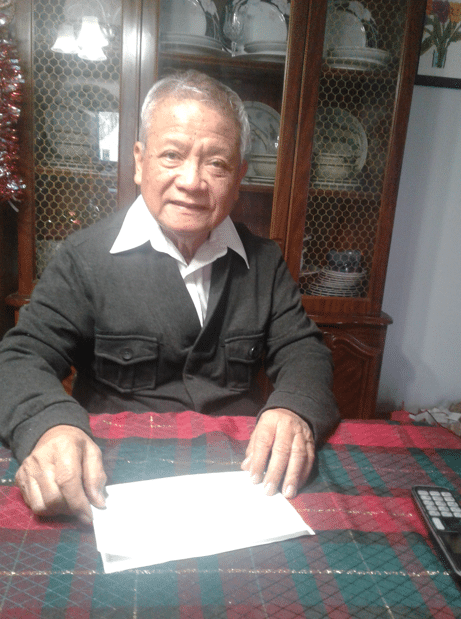Our Interpreters
As each language is unique, every interpreter behind that language, equally, has a unique story to share. Welcome to The Many Faces of Languages - a forum of thoughtful sharing and discovery.
We are pleased to offer this story selected for January 2024.

Story Introduction
Juan's Story
I appreciate this opportunity to relate and share my memorable experiences as a part time translator for Can Talk in Tagalog and a dialect called Ilokano in the Philippines.
I remember the days when I was working full time when the office was at Market Avenue in Winnipeg. Before that, I did interpretation jobs for Manitoba Language Bank and Immigration Canada. CanTalk is different from the two offices I just mentioned. Can Talk is very effective in connecting families, relatives and friends from one country to another, just by the touch of a button. How I wish I could have learned more languages! At the Can Talk office, I had so much fun in the translation of “one moment please” in different languages. To this day when I hear somebody speaking in French I would distract them and say “un moment s’ls vouz plait” or a guy speaking in Spanish, “un momento por favor”. And they would try to pursue a conversation with me and I would end up saying, “That’s all I know from CanTalk”.
The Can Talk office had set up a pleasant working environment, interpreters from different countries working together. As an immigrant that was the first time I met people from almost all the world. We had a good working relationship due to the absence of a dominant culture.
Tagalog is the official language in the Philippines. Most of my translations are in that language. However, there are a great number of Filipinos from the northern part of the country who do not speak Tagalog. They speak a dialect called “Ilokano”. There was an older lady in Hawaii who needed an Ilokano translator, which I was contacted for. The lady said to me in Ilokano, ”My education was up to sixth grade only, and I need your help.” She was relieved upon hearing me speaking in Ilokano. The joy of giving services to my countrymen gives me a sense of humaneness.
Moreover, I was born and raised in the Ilocano region of the Philippines.
Whoever address me as “sir” when I do my job, is a new immigrant. I would then explain first how the process is done. Example, no interruption, answer only the question being ask, no long sentences. Mostly the Filipinos can handle conversational English, but they are shy. A few of them probably would not need a translator but fearing their grammar, they are more comfortable with some help. There were a few times I ended up leaving the call after observing the customer can handle his or her English. That is after getting permission from both parties.
Most recently, I had been doing translations for people booking for COVID-19 vaccinations, people in quarantine or isolation. I experienced that when the person in charge of booking appointments is an ethnic person, confusion happened due to accents and word pronunciations. Some health technical terms may slow down the process too.
And that’s because there are many faces of languages.
To conclude I feel the activities of Can Talk makes the company a part of the solution to our world problems today, particularly on racism. I know CanTalk employs workers of different skin colors. A standing example that ethnic people can work together harmoniously.
I myself feel I am a part of the solution to world concerns thanks to CanTalk.
I commend sincerely The CEO and President of Can Talk, Maureen Mitchells for initiating this project.
Thank You.
